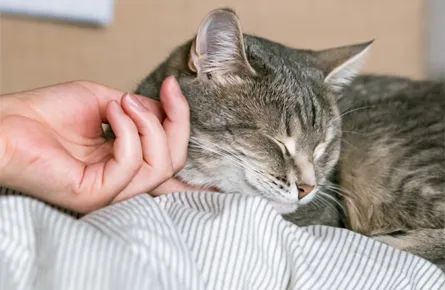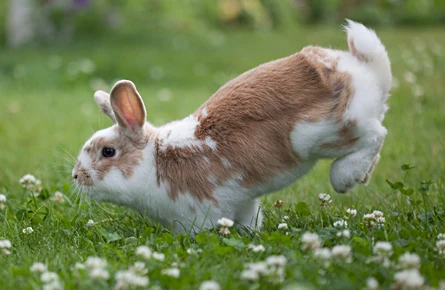Vaccinations at 608 Vets
Here at 608 Vets, in Solihull, we provide the optimum standard in pet vaccinations.
We believe that vaccinations are an important part of protecting your animals from severely harmful, yet preventable, diseases and are an essential part of responsible pet care.
We follow the most up-to-date, independent veterinary guidelines to give the very best protection against disease.
Longer-Lasting Protection for Puppies & Kittens
Most vet practices stop vaccinations at around 12 weeks, but research shows that many pets still have maternally derived antibodies (MDA) at this age. These antibodies can block vaccines from working, leaving young animals unprotected against serious illnesses, such as Parvovirus.
To ensure your pet is protected at the exact time their natural immunity fades, we
- Give a third vaccine at 16 weeks
- Bring the booster forward to 26 weeks (instead of the traditional one year)
Book a vaccination appointment
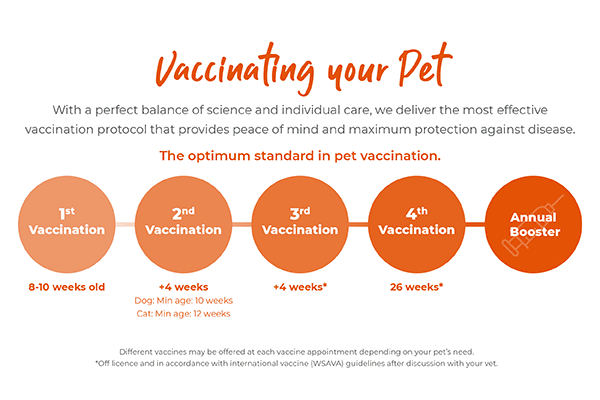
Better Protection Against Leptospirosis
Some vaccine protocols only protect against 2 strains (L2). Our updated L4 vaccines protect against 4 strains — including Leptospira Australis and Leptospira Grippotyphosa, which are present in the UK and can infect dogs, causing serious illness.
Smarter, Tailored Vaccination Schedules
We can now use simple blood tests (serology) to determine whether your pet needs a vaccine, helping to avoid unnecessary doses for those concerned about “over-vaccinating.”
Individualised Protection for Cats
Instead of a one-size-fits-all schedule, we create vaccine plans based on your cat’s lifestyle and exposure risk, so they get exactly the protection they need — no more, no less.
Dogs, cats and rabbits are susceptible to a number of life-threatening diseases, but scientific advances and the introduction of immunisation have been very effective in reducing the number of cases dramatically. It is tempting to assume that they are no longer a threat to our pets as we hear little about them, but they still do remain a constant danger, meaning the correct vaccination programme is the best way to keep your pet safe.
How do pet vaccinations work?
Vaccines contain harmless (either weakened or dead) variants of the viruses and other infectious agents. When an animal is vaccinated, the immune system responds by generating a protective mechanism through the formation of antibodies. If the animal is then exposed to the actual disease at a later date, the antibodies from the vaccination will prevent the disease from developing.
The type of vaccines 608 Vets recommend will be based on your pet’s lifestyle, risk factors and current guidance. However, it is important to remember that vaccines don’t give lifelong immunity, and that is why regular booster vaccinations are recommended. It is also an excellent opportunity for your pet to have a full health check. We send out reminders for all vaccinations.
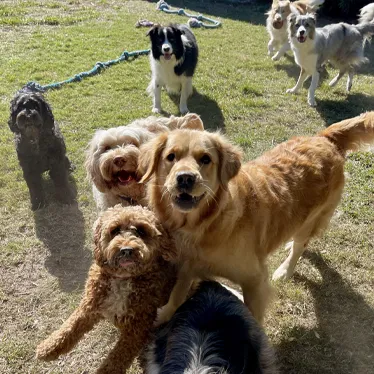
Dog Vaccinations
The primary vaccinations for puppies help to overcome the remaining antibody protection that they still have from their mothers and ensure reliable protection at an early age. The first vaccination is usually given at 8 weeks old, followed by 3 consecutive vaccinations from 4-week intervals up to 26 weeks old*.
Socialisation can occur after the 1st vaccination in a controlled way. Please discuss this further with your veterinary team to determine the best way to socialise your puppy safely.
Our advanced vaccination course ensures that puppies are protected, as they may not respond to early vaccines due to the presence of maternal antibodies.
608 Vets recommends that yearly boosters be obtained to ensure immunisation is up to date. We can provide the following vaccinations for your dog:
- Parvovirus
- Leptospirosis
- Distemper
- Canine Infectious Hepatitis
- Rabies
- Kennel Cough (Bordetella and Parainfluenza)
A full health check is booked for every dog undergoing vaccination to ensure it is in good health before receiving the injection.
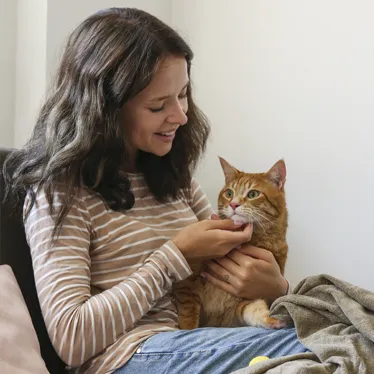
Cat Vaccinations
The primary vaccination course for kittens consists of 4 injections. As with puppies, kittens will have some protection from their mothers in their bloodstream, which is why 4 injections of the vaccine are required to immunisation.
Kitten vaccinations start from 8 weeks of age, followed by 3 consecutive vaccinations until your kitten is 26 weeks old*
A certificate of vaccination will be provided at the end of the course for your records.
It is important for annual boosters to maintain effective immunity. Here at 608 Vets, we can vaccinate your cat against the following diseases:
- Cat Flu
- Feline Enteritis
- Feline Leukaemia Virus
- Feline Chlamydophila
We can talk you through any vaccination that may be required for your cat.
Different vaccines may be offered at each vaccine appointment depending on your cat’s needs.
*off licence and in accordance with international vaccine (WSAVA) guidelines after discussion with your vet
Spread the cost of essential healthcare for your pet

To spread the cost of pet vaccinations, 608 Vets offer the Pet for Life Health plan, which includes vaccinations for your pets including kennel cough for dogs.
FAQs
Are yearly dog vaccinations necessary?
It is recommended that dogs receive their annual booster vaccinations to maintain their immunity and protection against dog diseases. The vaccines dogs typically require annually include Leptospirosis and if used, Kennel Cough. It is best to speak with your vet about the appropriate vaccines and frequency for your pet.
What vaccinations do dogs need?
- Infectious Canine Hepatitis: A viral disease spread via saliva, urine, blood, faeces, and nasal discharge. This disease affects the liver, kidneys, eyes and lungs of a dog.
- Leptospirosis: A bacterium that dogs can become infected with via contact with urine and stagnant water. This bacterium affects the kidneys and liver, causing dogs to become seriously ill.
- Distemper: A viral disease affecting the respiratory and nervous system. The virus is spread via urine, blood, saliva, sneezing and shared food bowls.
- Canine Parvovirus: ‘Parvo’ is a life-threatening disease that is spread through saliva and faeces of infected animals. Parvo symptoms include vomiting, diarrhoea, dehydration and anorexia.
- Kennel Cough: A highly infectious respiratory infection that is airborne. Symptoms include coughing and retching.
- Rabies:A fatal but preventable viral infection primarily affecting the central nervous system. While not present in the UK, dogs travelling abroad require a rabies vaccination.
Do dogs need vaccines every year?
Dogs should receive their yearly vaccinations throughout their life to prevent illness. Not all vaccines are needed annually, but your vet will recommend the pet vaccinations for your dog’s needs.
What injections does a puppy need?
- Distemper: spread by eye and nose discharge dog to dog
- Canine Hepatitis: spread by infected urine, faeces and saliva
- Leptospirosis: is spread by contact with urine and blood of infected animals or stagnant water where infected animals have been.
- Parvovirus: spread via infected faeces dog to dog
Adult Dogs: Adult dogs require annual booster vaccinations to maintain protection.
When can puppies have their injections?
Your puppy can start receiving vaccinations as early as 8 weeks. They still require booster vaccines every year.
At 12 Weeks (or 4 weeks after the first injection), the second round of Distemper, Hepatitis, and Parvovirus vaccinations, along with the second Leptospirosis vaccination, is administered. To ensure adequate protection, a third vaccination against Distemper, Hepatitis, and Parvovirus should be given another four weeks later (at 16 weeks of age). The vaccination course for puppies is completed with a final vaccination against Distemper, Hepatitis, and Parvovirus at 26 weeks of age.
Do dogs need kennel cough vaccine?
Kennel Cough is a highly infectious airborne disease, which is why Kennel Cough vaccines are recommended for all dogs from the age of 6-8 weeks old. All dogs going into a kennel or daycare generally require this vaccination before socialising to avoid the disease spreading and to reduce the symptoms if illness is caught.
Is Kennel Cough In Dogs Life Threatening?
Fortunately, for most healthy dogs, kennel cough is not normally dangerous; it will likely not need any treatment.
If you have a puppy, an elderly dog, or a dog with pre-existing conditions, it is vital to be aware of these symptoms in order to seek veterinary advise. Kennel cough can develop into a more serious condition, possibly resulting in bronchitis for some dogs.
Vaccinations for Kennel Cough in Dogs
Dog vaccinations include some of the infections that can cause kennel cough. It is therefore vital to ensure that your puppy receives their full initial cycle of vaccinations, followed by annual boosters.
The most common bacteria in Kennel Cough are Bordetella Bronchiseptica. This can be given to dogs as a separate vaccine, applied as . Although this will not guarantee protection, it can help to lessen the symptoms.
It is key to note that if your dog is already incubating kennel cough, the vaccine will be ineffective.
If your dog has been experiencing symptoms of Kennel Cough, or you have not yet booked your initial or annual dog vaccinations, speak to 608 Vets today. Our team can get your dog booked in with us in Solihull.



